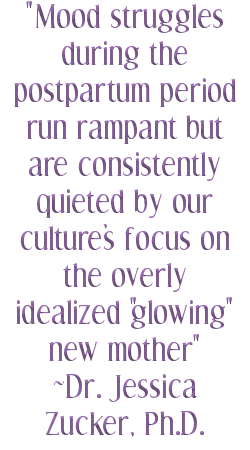
Good mornin, y’all. How’s it going?
I love Saturdays. LOVE. There’s something so cozy about Saturday mornings. Round here, we take things slow and easy, enjoy a delicious brunch, and just hang out. This morning we’re having Turkey Sausage, cheesy scrambled eggs, whole grain toast, mango juice, and coffee. NOM.
That’s what we’re doing here. We’re just sitting down for coffee, brunch, and chatting about some serious stuff, girlfriend to girlfriend. Or friend to friend.
So get cozy, grab your coffee, OJ, or tea, oatmeal, danish, waffle, Cocoa Puffs or Honey Smacks, and prop up your feet (yes, that’s allowed here), and enjoy. This is for you.
As always, I am not a doctor. I am a Mom who has lived through the same hell you (or someone you love) is currently or has lived through. I’ve been there. I know what it’s like to be alone and not know where to turn. Please check with your doctor before you do ANYTHING mentioned below. What works for one person may not work for another. This disclaimer is brought to you by Common Sense and Covering my, well, you know.
If you have a question, I’d love to hear it. Email it to me at mypostpartumvoice(@)gmail(dot)com. If you want to stay anonymous, that’s fine. Just tell me in your email. You can also catch me on Twitter via @unxpctdblessing or on Facebook at the My Postpartum Voice Fan Page. With any of these, be sure to mention your question is for the Saturday Sundries feature! I’ll answer just about anything including questions about my personal experience with Postpartum Mood & Anxiety Disorders. What I will NOT do is recommend medications or one form of treatment vs. another form of treatment. That’s for you to discuss with your doctor. I’ll be happy to provide resources and information regarding therapies, etc, but I do not get specific in regards to pharmaceuticals here. It’s an ethical thing.
Now, before your coffee gets cold, let’s get onto the questions!
@walkerKarraa asked: How do moms manage their meds during time in hospital when babies come?
This is really specific from situation to situation. If you are on psychiatric meds during pregnancy and will be on them through delivery and postpartum, this is something you will want to discuss with your provider. Many providers have Mom bring her meds from home. When I delivered my son, I was on medication. I brought it with me and gave the prescription to the nursing staff. They wrote down the information and then gave it back to me. Every morning, they checked with me to make sure I had taken my dose.
I would strongly recommend only bringing as many pills with you as will be needed for your stay in the hospital, if that is where you will be birthing. This way, if there is a misplacement of your prescription, you’re not out an entire month’s supply. This is also a question you can ask at pre-registration. Inquire about hospital policies regarding existing patient prescriptions and how the hospital handles them. Do not assume your hospital will know you need to take Med A at x o’clock and Med B at x o’clock. I cannot emphasize enough how important it is to have this discussion with your caregiver AND the hospital staff where you will be giving birth.
This question came in via email. While the reader did not specify to remain anonymous, I’m going to go ahead and respect her privacy anyway. Given the nature of the question, I immediately emailed an expert on this topic, Karen Kleiman. It was Karen’s book which led me to start this blog, actually. I did not know if I wanted to have another baby after our first one. In fact, we started trying for another one, I totally freaked out, we stopped, and then a few months later, we started up again and bam. Pregnant very quickly. I was on that train. After our second, we were once again on the fence. We had begun to lean toward not when we became pregnant with our son in a very unplanned manner. He’s 3 years old now and the happiest little boy you will ever meet. His happiness is infectious. But I am done. Done done done. I did not have PPD/PPA after his birth. I spent a good bulk of the time during my pregnancy focusing on resources and support for me, not for him. It sounds selfish, I know, but it really paid off. In the end, it WAS for him because the happier I was, the better mother I was able to be for him. Without any further ado, here is the question and the answer from the fabulous Karen Kleiman:
I got PPD/PPA 5 months after my daughter was born and that was 3 years ago. How does a mom like me even consider having another biologically? I read about moms who do it and don’t understand how they get there with the fear, and all. Where are the moms who have had PPD and choose not to have another? Where can I get encouraged from other moms who are like me, and not to feel guilty about not “doing” it again? The guilt is horrible for me.
Karen Kleiman’s answer: The decision to have another baby after experiencing postpartum depression and/or anxiety is complicated by a number of factors:
1) your personal experience
2) your medical history
3) your available support network
4) your course of treatment/recovery and
5) your (and your partner’s) desires, expectations and preferences, just to name a few.
So you can see how complex this decision can be. There are women who decide that having another baby is not worth the anguish of a subsequent pregnancy and unknown postpartum experience. There are women who decide that having another baby after PPD/PPA is worth the risk. It is, to say the least, an extremely personal decision. And one, I might dare say, that is no one’s business, but yours and your partner.
I know there is significant pressure, from society, from friends, from family, etc., but it is perfectly okay for you to determine what course of action is best for you and your family. And the guilt? It can feel overwhelming, to be sure, but guilt can only thrive if you provide the opportunity. You can, with proper support, learn to embrace your decision and more forward with confidence. Find a good therapist, read good books J, find support online, (ppdsupportpage.com, Lauren and her awesome PPD twitterdom, for example). Trust me, there are many many women who struggle with this and there is never one right answer. You will feel better if you can find a therapist who specializes in this area, so you can discuss the pros, the cons, the fear, the guilt, and ultimately make an informed decision that fits your needs the best. Then, take a deep breath, and give yourself permission to stop torturing yourself. All will feel right again soon.
@Zeeke75 asked a question that I’ve been hearing a lot lately. “how do you know when it’s no longer PPD and something else?”
Oh look, a leprachaun – over there! Seriously. Look!
What? You don’t believe m… OOOH! Unicorns! There!
Okay, here’s the deal.
This is a touchy question. This question is really the crux of the current DSM-V debate. It’s very hard to answer. VERY hard.
When I attended the PSI/Marce Conference in Pittsburgh this past October, there was a presenter, Ellen Frank, Ph.D, a volunteer working with the Mood Disorders group. Dr. Frank postulated that due to the lack of research indicating a clear off-set for Postpartum Depression, the current onset of Postpartum Depression and other Postpartum Mood Disorders would continue to show a cut-off date of four weeks. What this means is that according to the new DSM, a woman cannot “officially” have Postpartum Mood Disorder if she presents with symptoms any later than four weeks after birth, something I think is a total crock of BS but hey, what do I know? I’m just someone who did not present with symptoms until 3 months in with my first and was actually told by my physician I didn’t have PPD because I was more than four weeks Postpartum. The DSM’s staff’s argument is that the DSM is merely a reference book and is flexible for interpretation from case to case – well, someone should have told my doc this. He actually pulled out the DSM-IV and read to me.
In the bigger picture, this also means that there is a lack of research in the area of a clear “off-set” of symptoms. This means that it’s really hard to “officially” say that a PMAD has moved from being a PMAD into something else.
Many of us in the field will tell moms that onset for a PMAD is anytime within the first 12 months after birth. We also state that it can take up to 18 months to recover properly. But that doesn’t mean that once your little one turns 18 months you should be running through fields of poppies and floating on clouds.
Recovery time line depends on oh so much. It depends on when you were first PROPERLY diagnosed, when you first received an effective course of treatment/therapy, what kind of support you have, what extenuating circumstances may be present in your life, how cooperative and honest you are in the recovery phase, etc.
How this question is answered from woman to woman varies depending on all of these variables. For some physicians, it’s quite cut and dry. At a certain time, your doctor may consider you no longer Postpartum and into full blown depression, anxiety disorder, etc.
The important thing to remember here is that even if your diagnosis changes, you are still making forward progress even if it doesn’t feel like it. I know it’s overwhelming to go back into that dark place, I do. I went back twice. Each time, it was worse than before. But you know what? I had been there before. I KNEW what I need to do in order to get out. Think of it as playing a video game level. Once you’ve played, even if your character fails and you find yourself at the beginning of the game, you know precisely what to do in order to get through what previously were potholes. So you see, you’re already ahead of the game. You can sides step these really dark holes which trapped you before. Fall into one? Okay. Climb out – you KNOW how to do it. You’ve done it before. You can still do it.
And just because you no longer have the official label of “postpartum depression/anxiety/OCD, etc, doesn’t mean that those of us who have PPD labels, etc, are going to shun you. If anything, we’ll just love you that much more.
Also important to note here is that if you develop a full-blown mental illness, expect your family to struggle with this new diagnosis as well. Many times it is just as hard for them to coped as it is for you. Your loved ones may have previously been accepting, understanding, and supportive. But they may now feel that you are out of the woods and this “relapse” is all in your head. If that happens, send them to me. I’ll set ’em straight.
Those are all the questions we have for today. Don’t forget to submit your questions for next week’s Saturday Sundries. I KNOW you have them!







